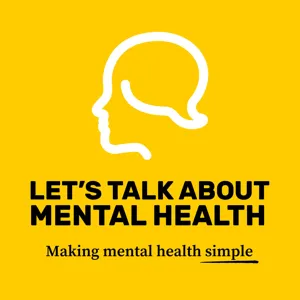Podcast Summary
The disconnect between effort and reward: Young people feel trapped in dead-end jobs due to lack of incentive and disconnect between their hard work and reasonable return.
The feeling of being trapped in a dead-end job, especially among young people, is a growing sentiment. This situation is challenging due to the perception that young people are lazy, but the real issue is that people are working hard without seeing a reasonable return on their efforts. Many are unable to support themselves or their families with their current jobs. It's not that people are inherently lazy; rather, the lack of incentive to work is a significant issue. This disconnect between effort and reward can lead to despair and a sense of being stuck. This sentiment is not unique to one individual, but rather, it's a common theme seen in various stories of young people struggling to find purpose in their work.
The norm of spending most of life in a crappy job is outdated: Understand historical causes, focus on skills, networks, and alternatives, and accept what's outside of control to find meaning and fulfillment in life.
The expectation of spending most of one's life in a crappy job is a norm that has been shaped by historical circumstances, but it no longer serves us well in today's world. The speaker draws on the example of his grandmother's generation, born around 1930, when the infant mortality rate in India was high, and basic necessities like electricity and running water were scarce. In contrast, we now have more opportunities and resources, but we're still trapped in jobs that don't fulfill us or provide a decent return on our time and energy investment. The speaker emphasizes the importance of understanding the root causes of this situation and focusing our energy on things we can control, such as acquiring skills, building networks, and exploring alternative ways of living and working. The key is to recognize that some aspects of the problem are outside of our control and not to waste our energy on futile resistance. Instead, we should focus on what we can do to improve our situation and find meaning and fulfillment in our lives.
The historical influence of survival on work attitudes: Despite advancements in technology and resources, our expectations of having to work hard at things we don't enjoy stems from historical survival needs, creating a disconnect in modern life.
The expectation of having to work hard at things we don't enjoy stems from the historical need for survival. For most of human history, people had to work every day just to get food and basic necessities. This mindset, rooted in the necessity of survival, still influences our modern expectations and attitudes towards work and enjoyment. However, with advancements in technology and access to resources, survival is no longer the primary concern for many people. Yet, our expectations have not fully adapted to this new reality, leading to a disconnect between the world we live in and the beliefs we hold.
Shifting focus from survival to overall well-being: As advancements improve survival rates, we must prioritize happiness and self-actualization in our systems, rather than just survival.
While death is inevitable, modern advancements have significantly improved survival rates and shifted the focus from basic needs to higher forms of fulfillment. Obesity and related diseases now pose greater health risks than hunger in developed countries, and automation has reduced labor requirements. However, our systems have not kept up with these changes, focusing on survival rather than overall well-being. The entertainment industry's growth is a testament to this, as people seek more entertainment with their increased free time. We must redesign our systems to prioritize happiness and self-actualization as we move up Maslow's hierarchy of needs.
Rejecting Jobs Against Personal Ethics: Gen Z and millennials prioritize personal fulfillment over work, leading to a shift towards alternative career paths or advocating for change within organizations, with many feeling trapped in unsatisfying jobs due to financial strain, requiring societal change.
The current work culture, which assumes that people have to endure crappy jobs for society to function, is outdated. Younger generations, particularly Gen Z and millennials, are increasingly rejecting jobs that go against their personal ethics. This trend is significant, as nearly half of these generations in senior positions have done the same. This shift towards prioritizing personal fulfillment over work is a reflection of the evolving needs of society. However, it leaves many individuals feeling trapped in unsatisfying jobs. The great resignation, with many people taking on additional jobs, is a response to this financial strain. This is a systemic issue that requires societal change. If you're facing this situation, consider exploring alternative career paths or advocating for change within your current organization.
Managing Our Response to Negativity Online: Be aware of the negativity bias on the internet, limit exposure, and focus on positive activities to maintain a balanced perspective and improve well-being.
While it's easy to get lost in the negativity and despair that can be amplified on the internet, it's important to be aware of the impact it has on our minds and limit our exposure to it. The external reality of societal changes and the struggles of generations like Gen Z may be beyond our control, but we can take steps to manage our internal response to it. This includes being mindful of our information diet and recognizing the potential for creating an echo chamber of negative feelings online. While it's natural to seek comfort in shared misery, it's essential to remember that happier individuals may spend less time on the internet due to their engagements in their jobs and other positive activities. Ultimately, being aware of the bias towards negativity on the internet and limiting our exposure to it can help us maintain a more balanced perspective and improve our overall well-being.
Social media and chronic stress: Critically consume info, challenge biases, and limit emotional content to reduce chronic stress and improve mental and physical health, leading to more nuanced thinking.
Excessive exposure to biased and polarized information on platforms like Twitter, which restrict nuanced thinking due to character limits and emotional engagement, can lead to chronic stress, elevated cortisol levels, and black and white thinking. To mitigate this, it's essential to be critical of the information we consume, identify and challenge our cognitive biases, and limit our exposure to emotionally charged content. The cortisol system, designed to keep us alive during short-term danger, becomes problematic when our stress levels remain chronically elevated due to modern-day stressors, leading to negative consequences on our mental and physical health and biased thinking.
Recognize black and white thinking, control your info diet: Control your info diet, avoid black and white thinking, and approach life like a game of chess for progress
Our brains are wired to perceive the world in black and white terms during times of intense emotion or survival situations. However, it's essential to recognize that these conclusions may not be objectively true. The speaker emphasizes the importance of controlling your information diet, recognizing black and white thinking, and approaching life like a game of chess to make progress towards your goals. The speaker's personal journey from struggling academically to becoming faculty at Harvard Medical School demonstrates that small steps can lead to significant achievements over time.
Focus on the present and trust your experiences will shape the future: Recognize that life's journey is non-linear and unexpected, and focus on making the best move at each moment to shape your future, drawing from past experiences.
Life is a non-linear journey filled with unexpected twists and turns. Just because you may not see the immediate reward for your efforts does not mean that you're not making progress. It's important to recognize what helps you and what doesn't when it comes to your time spent on the internet. Instead of being certain about the future, take a step back and focus on making the best move at each moment in your life. Your experiences, even the difficult ones, can lead to future opportunities that you may not even realize yet. The world has seen numerous examples of this, from the unexpected impact of COVID-19 to the rise of new technologies like NFTs. So instead of being overly confident or pessimistic about the future, focus on the present and trust that your experiences, both good and bad, will shape your future in unexpected but ultimately rewarding ways.
Watching YouTube may improve depression and anxiety symptoms, but more research is needed: Consider the long-term perspective, make intentional choices, challenge negative thinking, and recognize the availability of mission-driven jobs
While there is initial evidence suggesting that watching YouTube may improve some symptoms of depression and anxiety by 11-20%, this effect is not yet proven and requires further study. Additionally, it's important to be mindful of what we consume online and challenge our black-and-white thinking patterns. The speaker also emphasized that time-limited situations, such as taking a gap year, should not be perceived as lifelong commitments. Instead, each step we take, like going to college, is a move forward towards bigger opportunities. The speaker also highlighted a trend from a privately conducted survey that people are turning down jobs that don't align with their mission and values, suggesting that there are more mission-driven jobs available. Overall, the speaker encouraged listeners to recognize the long-term perspective of life and make intentional choices towards personal growth and fulfillment.
The pace of technological change is accelerating: Embrace change and be prepared for the unknown, as no one can predict the future with certainty.
The rate of technological change is increasing at an unprecedented pace, and it's impossible to predict what the future will hold. The speaker shares an example of how people's lives have changed drastically over the centuries, from a lack of electricity to advanced medical procedures and space travel. She also mentions how technologies like the Internet, airplanes, and 3D printing have already disrupted traditional industries like retail. The speaker emphasizes that if you're concerned about the future and its potential impact on your life, you need to adapt and take proactive steps, as no one can predict the future with certainty. She encourages young people to be open-minded and flexible, as the world will continue to change at an accelerating rate. Overall, the key takeaway is that we need to embrace change and be prepared for the unknown.





